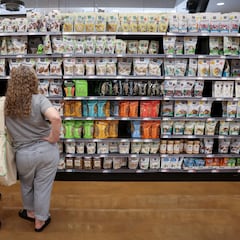Beer sales down in 2023: Are people drinking less alcohol in general?
Sales of the beverage dropped by a huge amount in the first months of 2023, the lowest level in 25 years.


Shipments of beer in the US are at their lowest level since 2019. Industry group Beer Marketer’s Insights noted a shift to other alcohol as the most significant factor in the decrease.
Once burgeoning sectors such as craft beer had their first decrease in sales, excluding the pandemic, since recording of data began.
“It was a tough year for beer,” said David Steinman, BMI vice president and executive editor.
The industry group was keen to note the influence of other alcoholic beverages in battling with beer for market dominance, but evidence suggests many Americans are choosing to forego the booze altogether.
Are people drinking less alcohol in general?
Surveys are showing that the number of young people drinking in the US is decreasing. The percentage of young adults, aged between 18 and 34, that report drinking has decreased from 72% to 62% over the last 20 years. Fewer than 40% of young adults are regular drinkers; 20 years ago they were the most likely.
Clearly there has been an attitude change around alcohol for the new generation of adults. More polling suggests young adults are more aware than ever of the negative health aspects of drinking.
These are the important goals to Gen Z, per a survey and BI: pic.twitter.com/iWi3dzvsgn
— unusual_whales (@unusual_whales) January 5, 2024
Related stories
This is particualrly true of mental health issues, which have really come to the forefront even in the last ten years. Young adults may be opting to avoid alcohol as a way to manage stress and anxiety, recognising the potential negative impact of alcohol on mental well-being. 41% of these groups link alcohol with “vulnerability” and“anxiety”, according to Google Search.
An important factor in noted by Gallup is the changing demographics of the country. Half of young adults today are Black, Hispanic, Asian or another racial minority, groups that are much less likely to drink compared to White Americans. This number has grown from a third of the young adult population 20 years, naturally the data reflects the decrease in drinkign habits.

